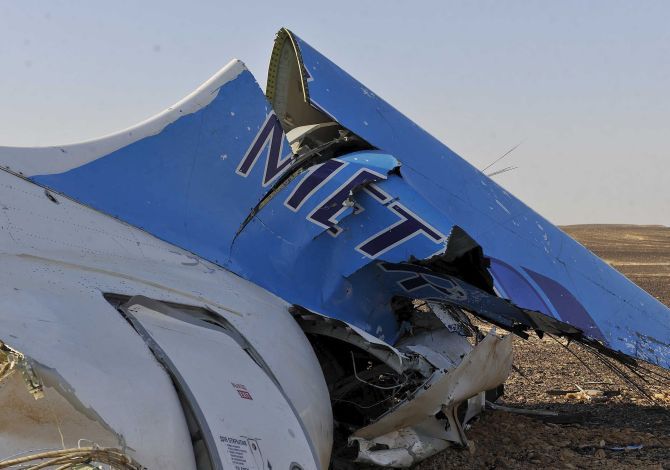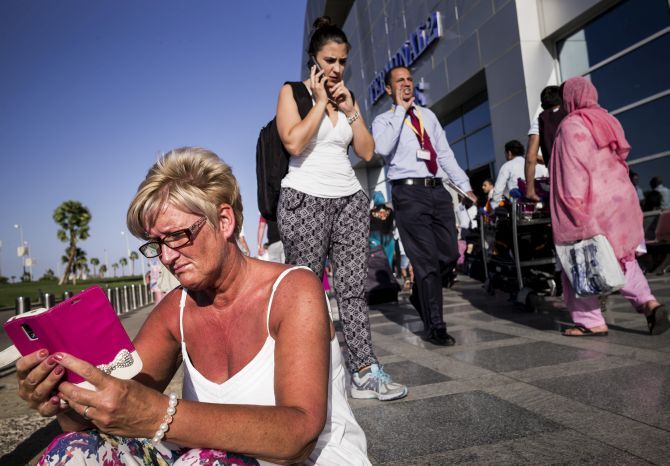British tourists returning from Egypt told to leave luggage behind as airport security is tightened in wake of disaster in Sinai

Russia’s Metrojet Flight 9268’s mid-air destruction over Egypt, in which 224 people died, bears all the chilling hallmarks of the devastating Kanishka tragedy, experts fear.
British counter-terrorist officials believe a bomb may have been smuggled through lax security at Sharm el-Sheikh in Egypt where the doomed Russian jet took off for St Petersburg on Saturday.
On June 23, 1985, Air India Boeing 747, named after the Kushan dynasty emperor Kanishka, flying from Montreal to New Delhi exploded killing 329 people on board. Investigations revealed that members of the Sikh militant group, Babbar Khalsa, had planted a bomb in a bag in the cargo section, which exploded at the altitude of 31,000 feet.
The British and United States governments have said it is possible an explosive caused the St Petersburg-bound jet to crash in the Sinai peninsula after taking off from the Red Sea resort of Sharm el-Sheikh, killing all 224 people on board.
Flights with heightened security resumed on Friday between Sharm el-Sheikh and Britain after the former had temporarily suspended flights on Thursday.

These flights will operate under special security measures mandated by the UK Government,” a statement from Thomson Airways said.
“All hold luggage will be returned to customers under separate secure cover arranged by the UK government.”
The Islamic State jihadist group has claimed responsibility for the disaster, but the idea has been played down by Russia and Egypt, which is keen to protect its valuable tourism industry and has urged patience until the results of an investigation into the crash are known.










